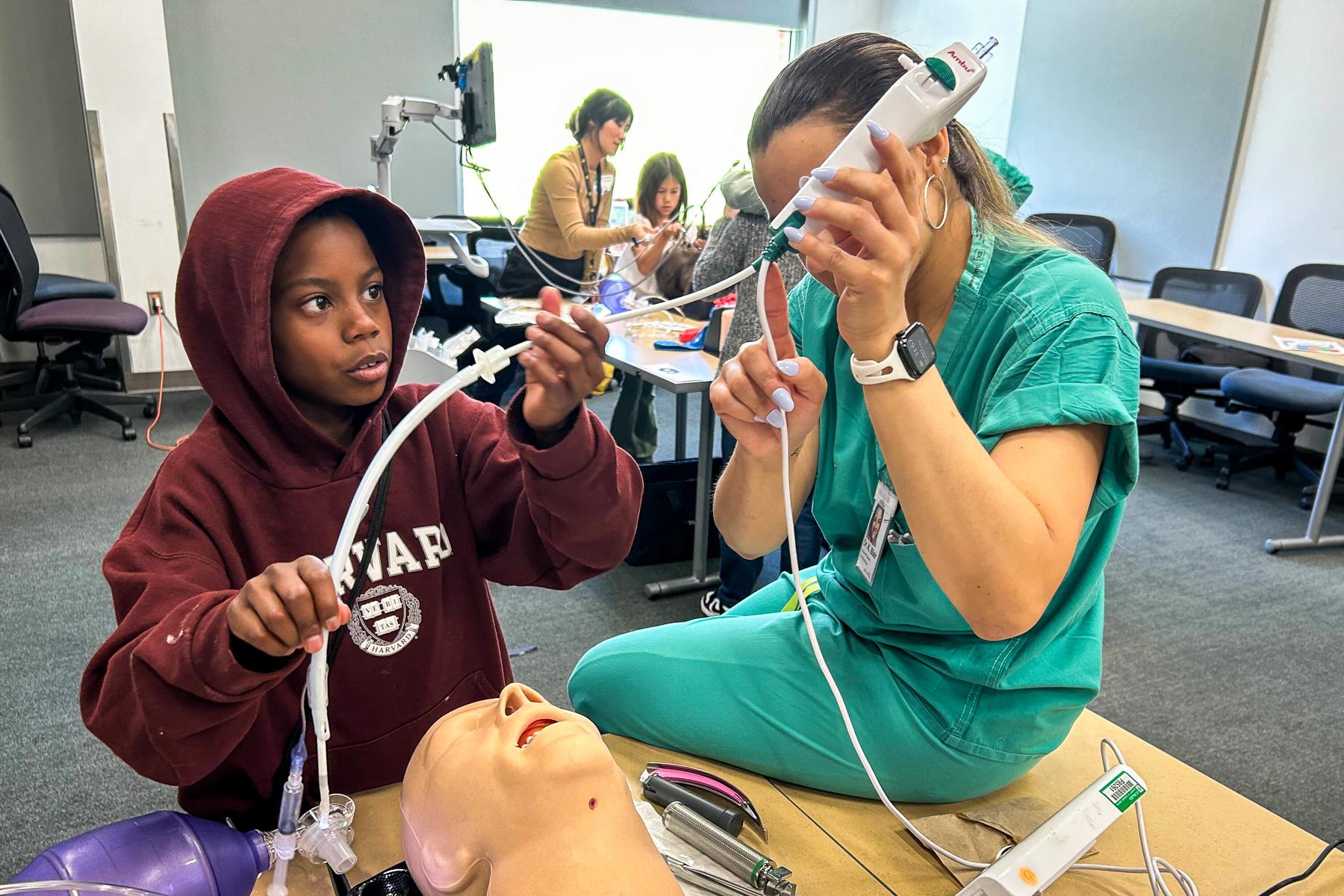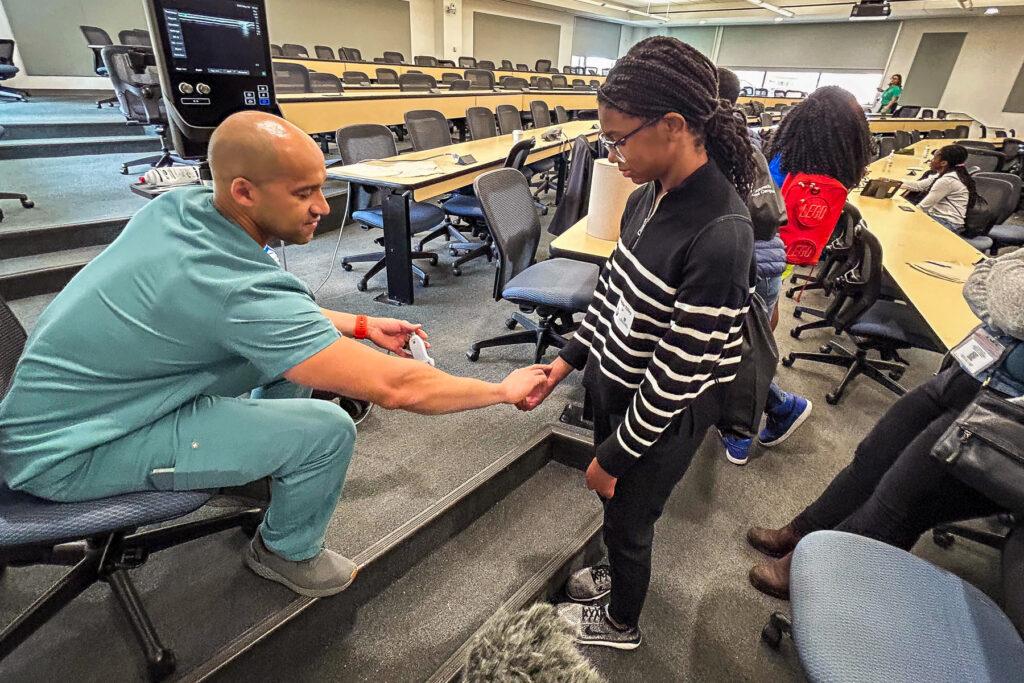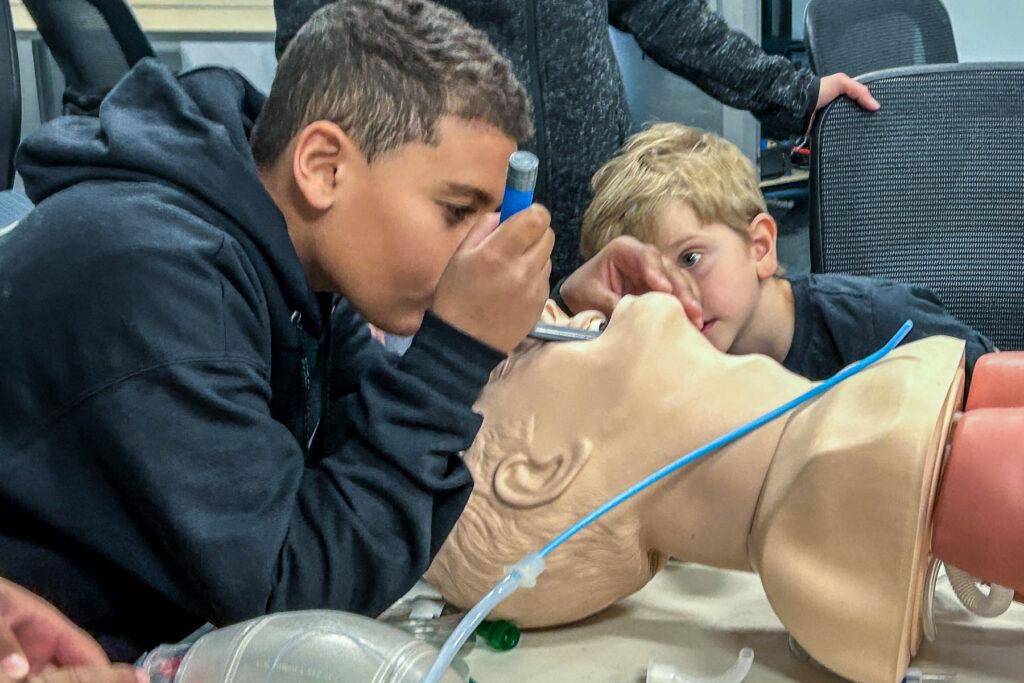
Kayden Riley, a fifth grader at Blessed Sacrament Catholic School in Park Hill, loves basketball and, therefore, the Denver Nuggets of course — baseball cap and all.
But last Saturday, Riley was able to learn something a little different at the CU-Anschutz Medical Campus: medical procedures.
Now, the NBA lover wants to be a doctor.
Riley was able to learn and even practice medical procedures as part of the Black Men in White Coats’ Youth Summit, an organization that seeks to increase the number of Black men in the field of medicine through exposure, mainly aimed at K-12 students.
“It was really fun,” Riley said. “Especially the one where you got to learn about how they do anesthesia and how to get the patient to breathe when they're asleep during surgery.”
Like most Black children, Riley hasn’t been around many Black medical professionals. Last weekend, Black Men in White Coats partnered with medical schools across the country to hold youth summits. This was the group’s second event at the CU School of Medicine.
Desirea Thames has twin daughters at McAuliffe International School. They attended both CU gatherings.
“Their own primary doctors have been predominantly white, but they've had an exposure to Black doctors in professional settings,” Thames said. “I have quite a few nurses in my family.”
But she says the event played a huge role in their interest in becoming doctors. She says one daughter is looking at physical therapy and the other is interested in neuroscience or pediatrics.
“We are lacking in this profession. They've never seen that for themselves,” Thames said. “So, when they are here and they hear that, they're kind of like, ‘really?’”

About 500 elementary and middle school students registered for last Saturday’s event. Students participated at various stations featuring anesthesia, emergency medicine and physical therapy.
Dr. Shanta Zimmer is the Senior Associate for Medical Education in the CU School Medicine. She says part of the reason why Black students aren’t interested in the medical profession is because they do not see Black role models in the field.
“We have a long way to go to increase the number of Black physicians,” Zimmer said. “We know that having a diverse physician workforce actually improves the quality of care that we provide for patients in the communities. Communities of color in particular do better when there are physicians of color as well.”
Other event speakers included Denver area doctors Johnny Johnson and David Bruton. Johnson is a practicing OBGYN and president of the Mile High Medical Society. Bruton played for the Denver Broncos and Washington’s NFL team, but now he practices physical therapy.
According to the latest data from the Association of American Medical Colleges, only 5.7 percent of the medical professionals in the country identify as Black or African American. Most of those doctors go into obstetrics and gynecology, preventative medicine, and child and adolescent psychiatry.
At the CU School of Medicine. enrollment numbers for the 2024 spring semester included 255 students who identify as African American, or about 6 percent. The school also has 100 Black physicians, 70 women and 30 men.

Dr. Dominic Royster is finishing up his four-year residency in anesthesia. Originally from England, he enlisted in the United States Air Force for 10 years as a surgical medic before going to medical school in Kansas City. He said he really never had a mentor in medicine from the African American community while growing up.
“As a kid, seeing that you can do this as someone who looks like you is kind of inspiring,” Royster said. “I think this is a good mentorship program of just getting contacts because knowing someone who looks like you can definitely open doors, just because I've been through that struggle myself of not really having a Black doctor to identify with.”
Leticia Nesby agrees. She attended for the very first time with her two sons. They are both enrolled at Denver Science and Technology Conservation Green. As a parent, she felt her role is to expose her children to different cultures where the African American community isn’t predominant.
“As parents, we expose them to people who look like them, who think like them, and who are from the same kind of backgrounds,” Nesby said. “I think that expands your success exponentially.”









